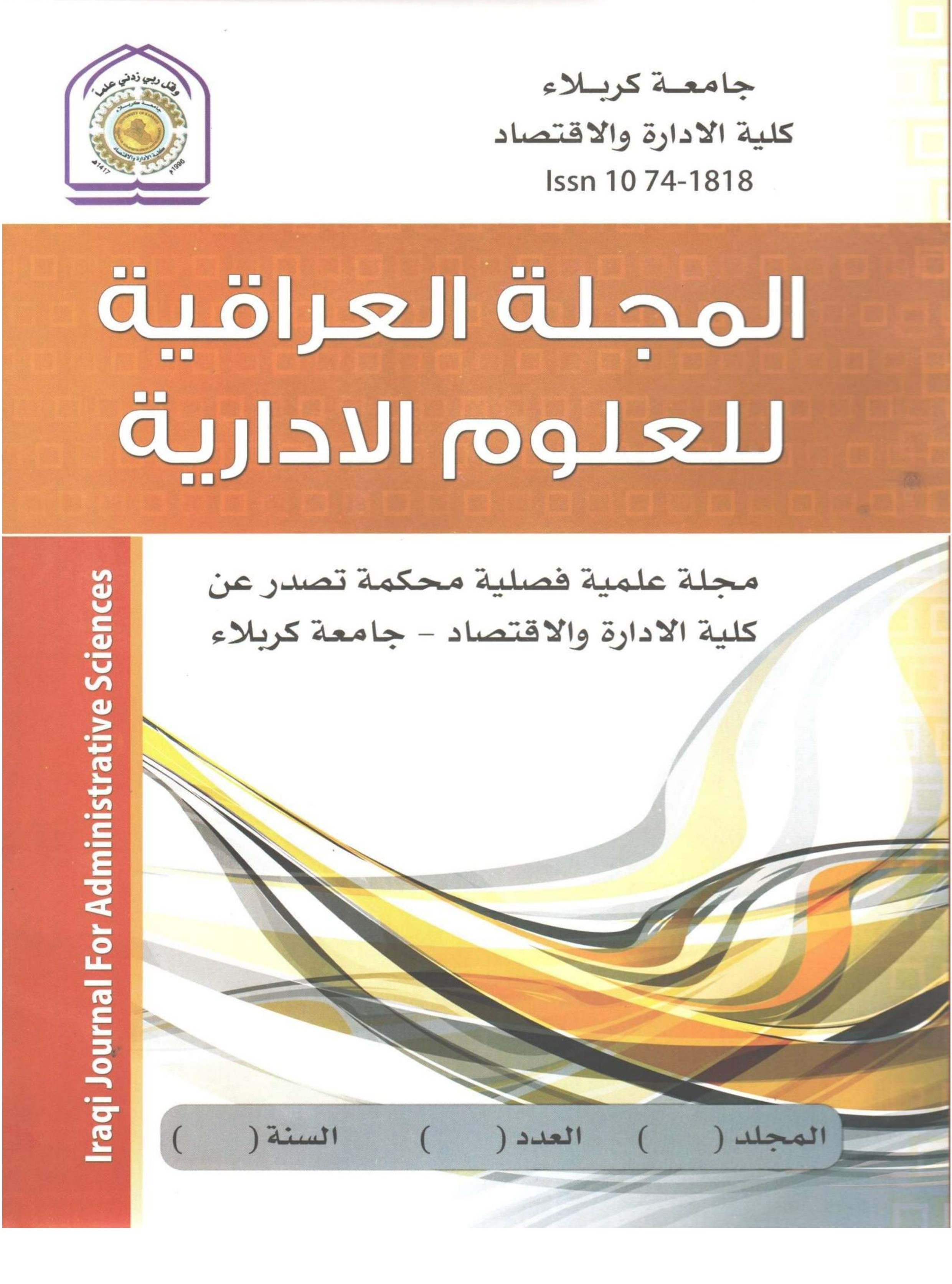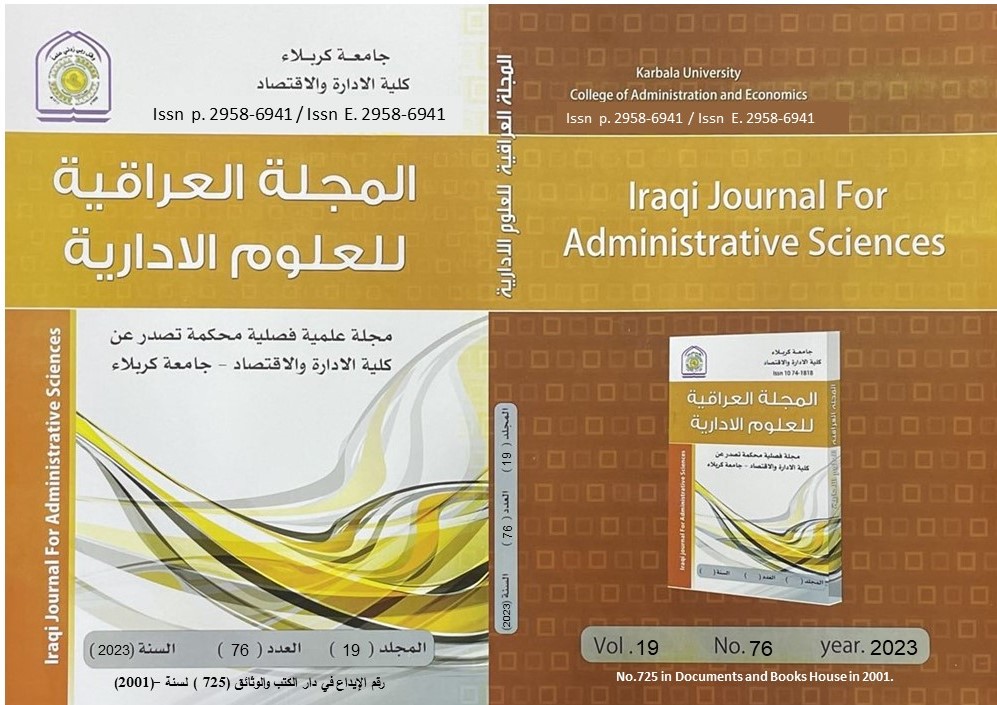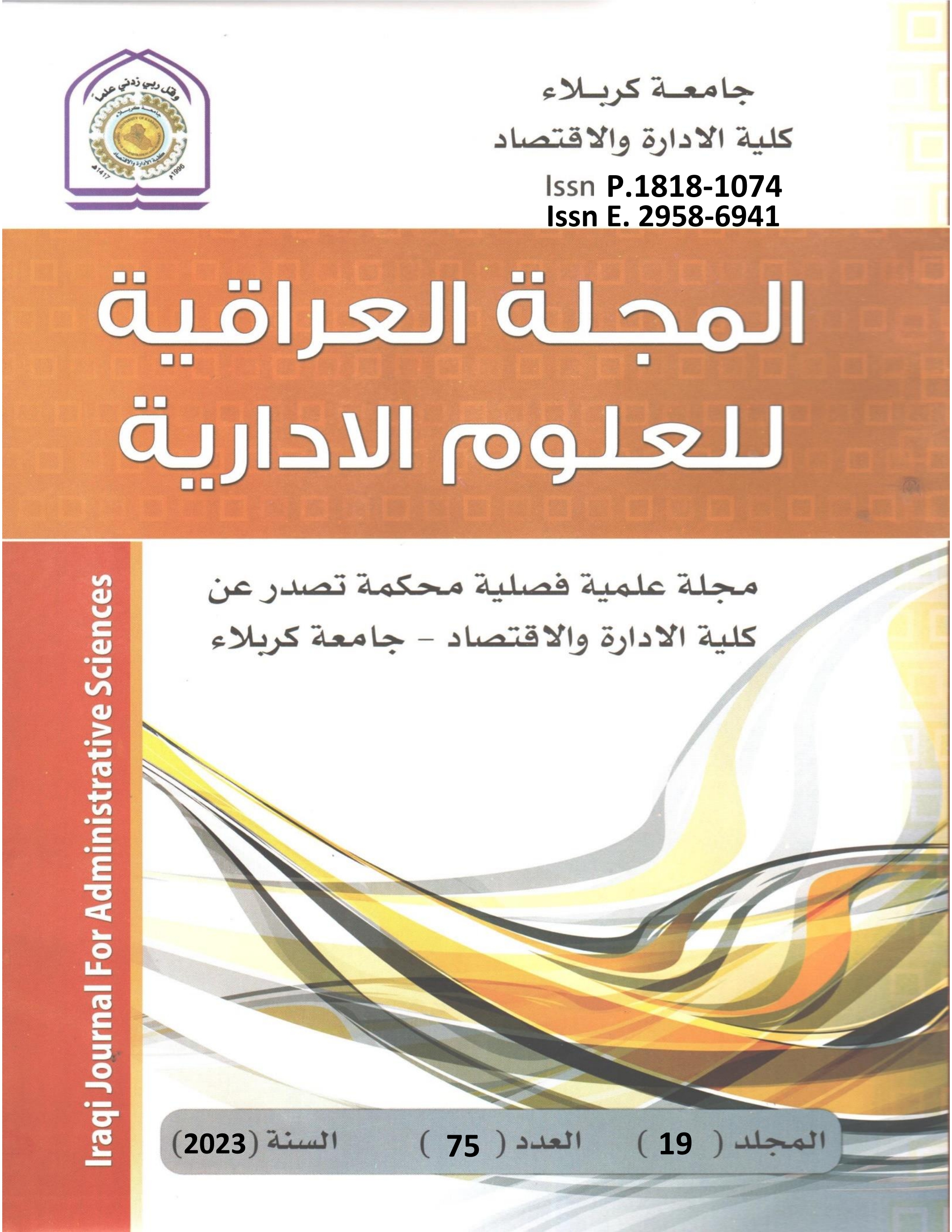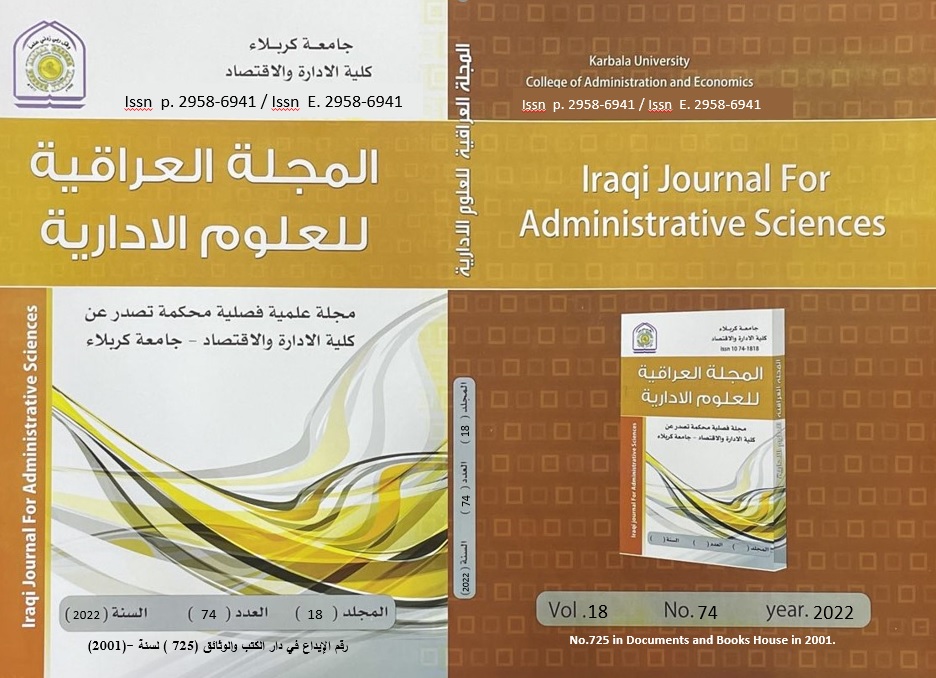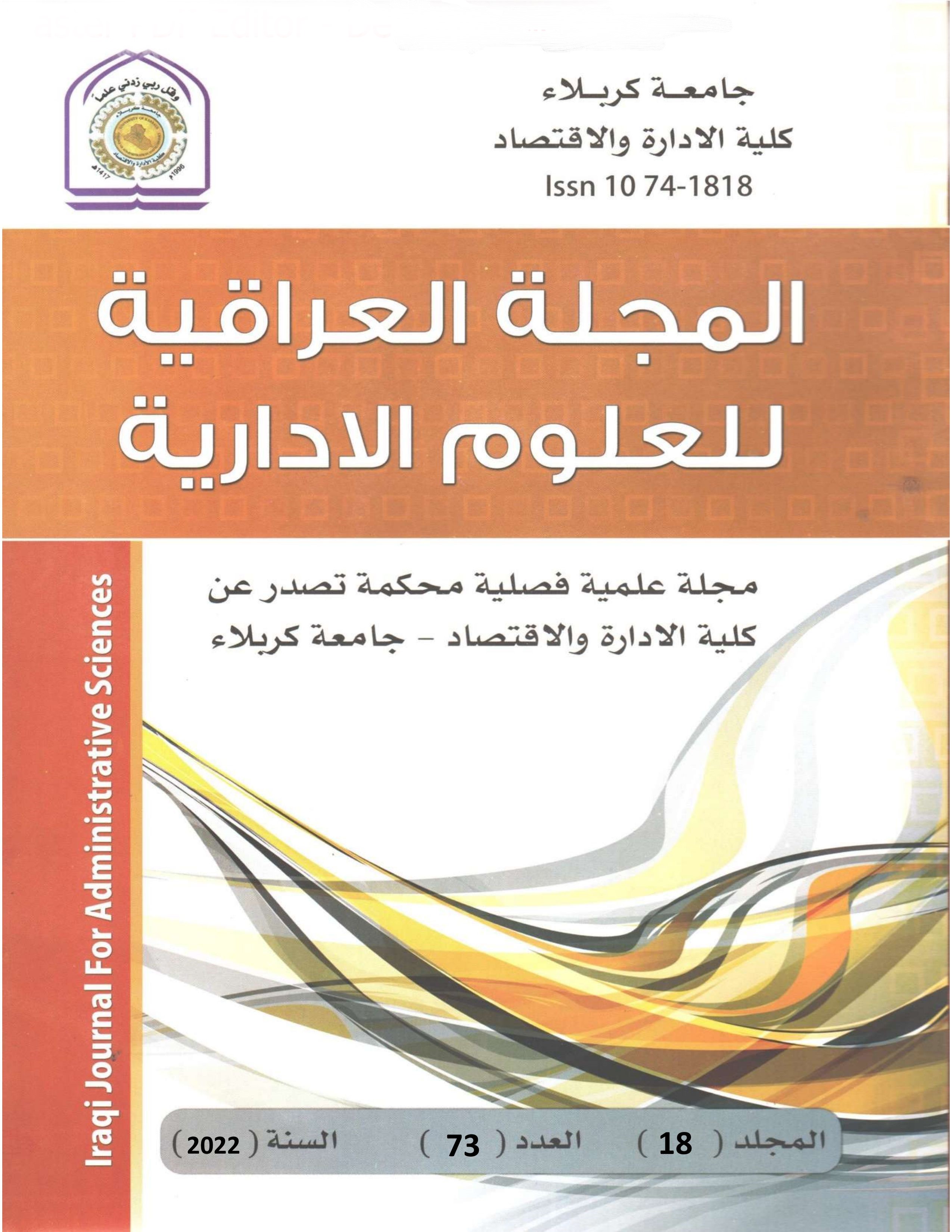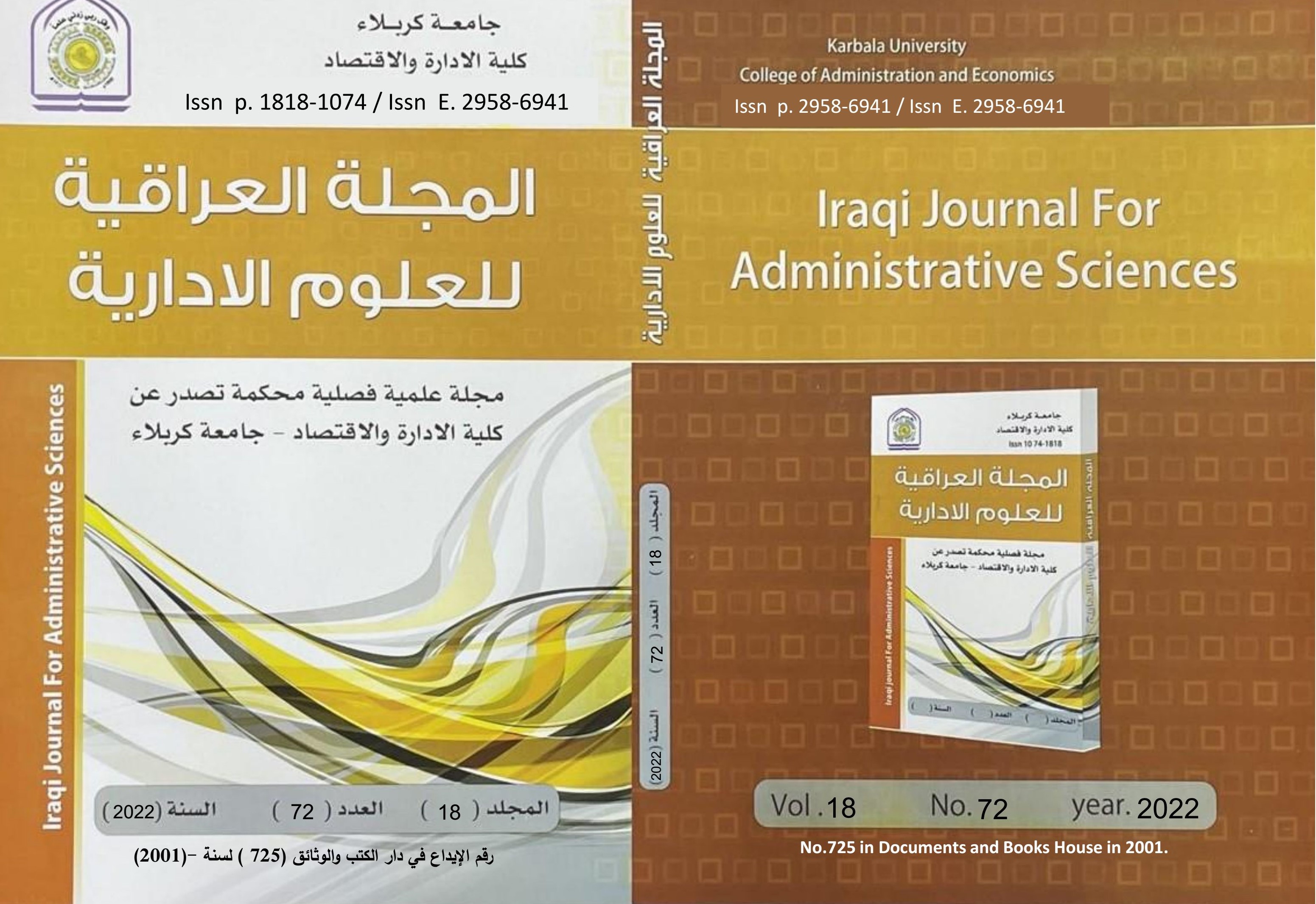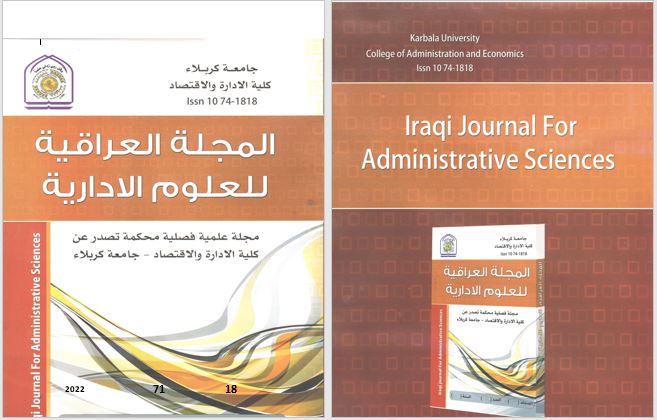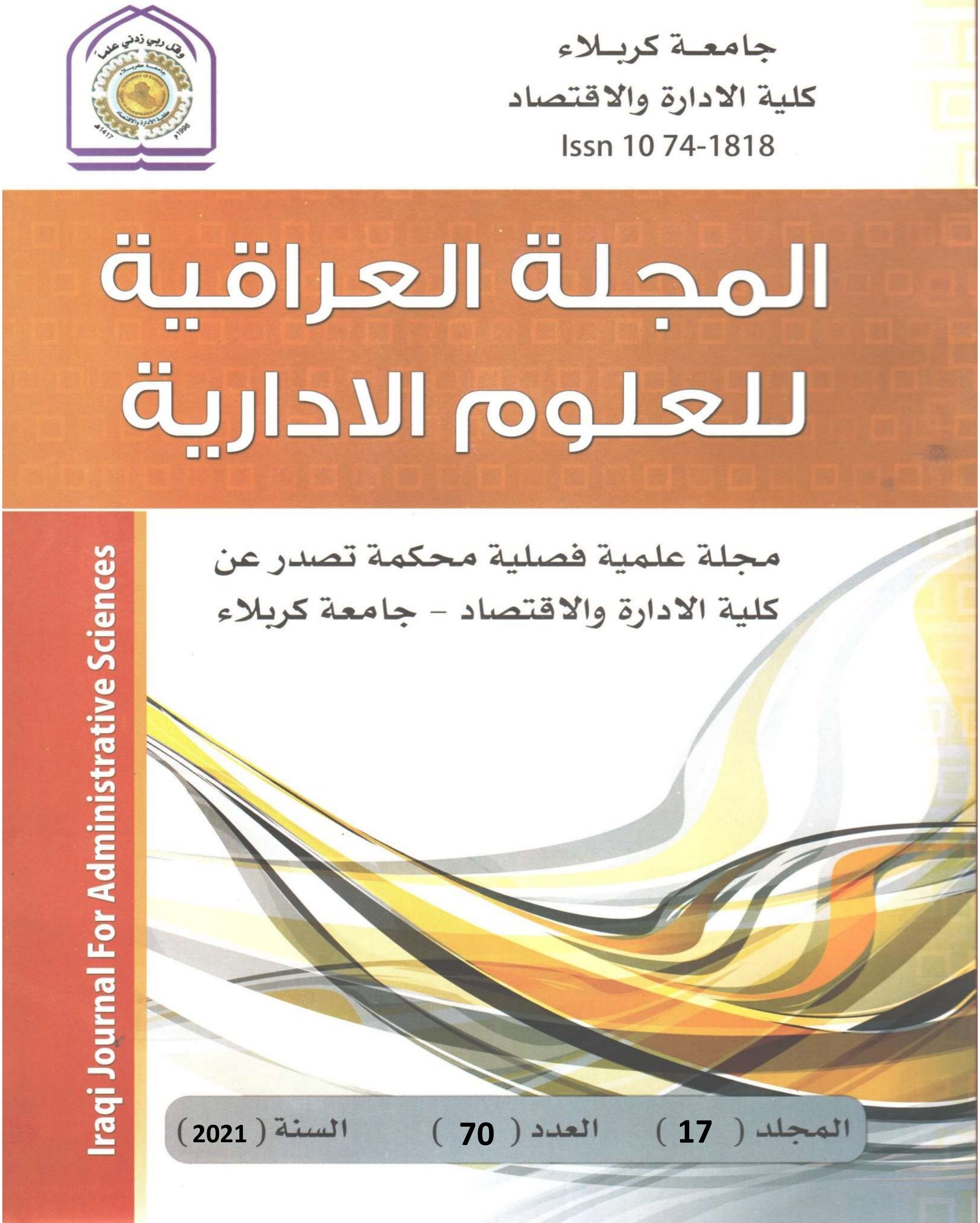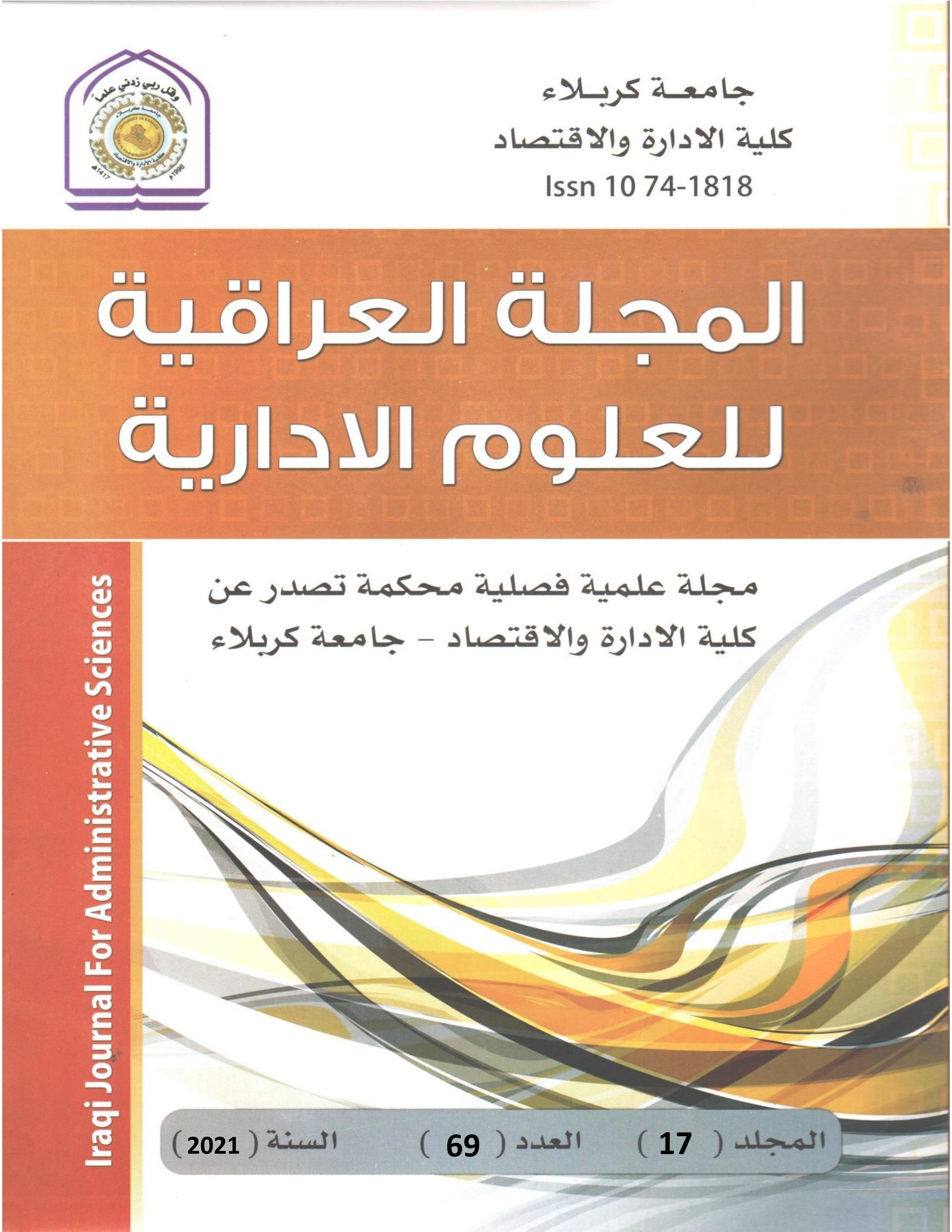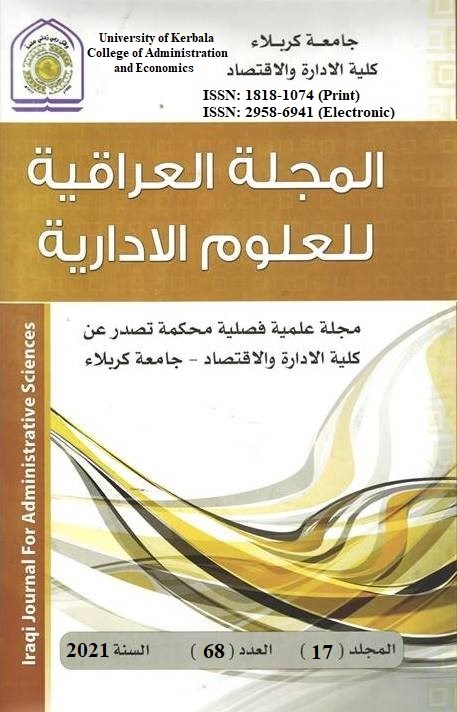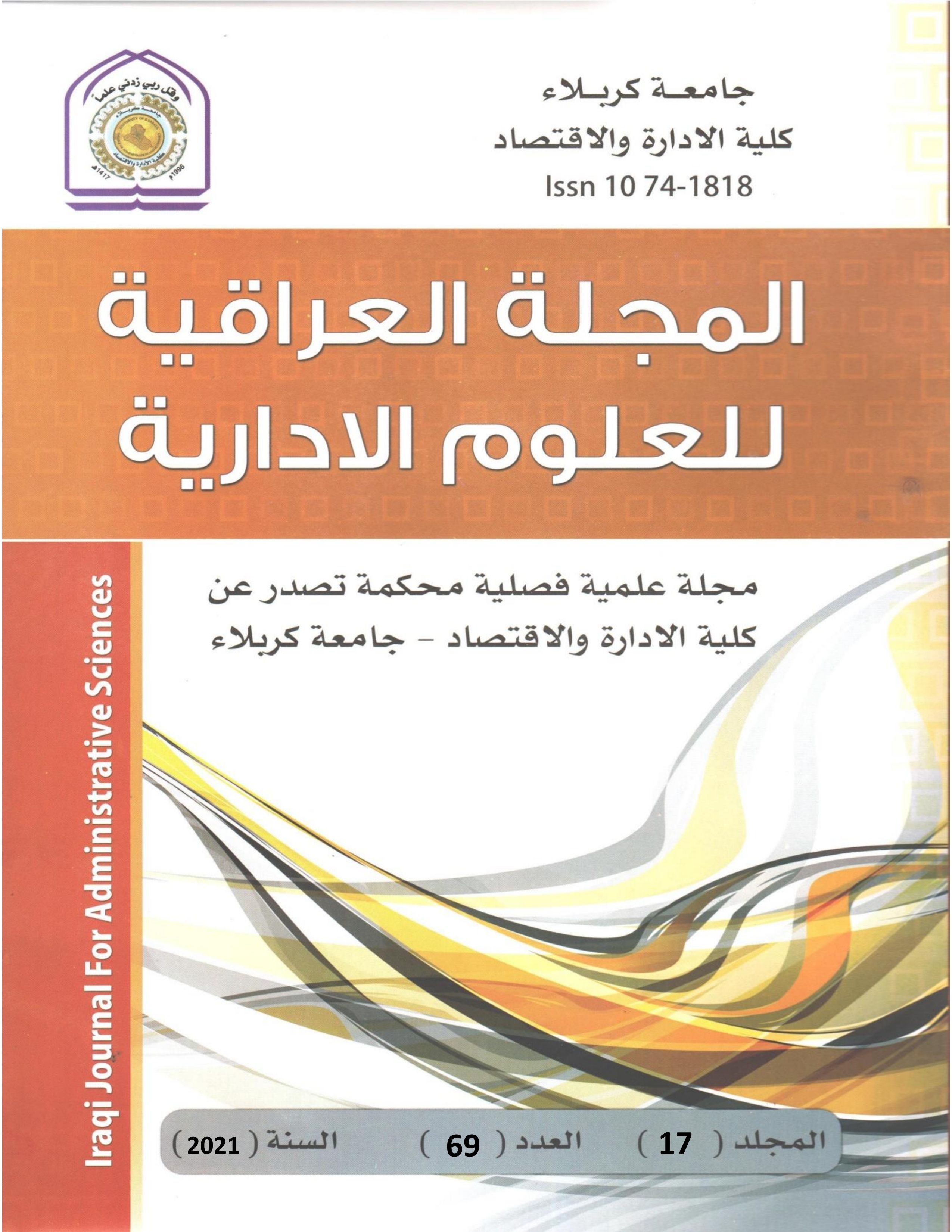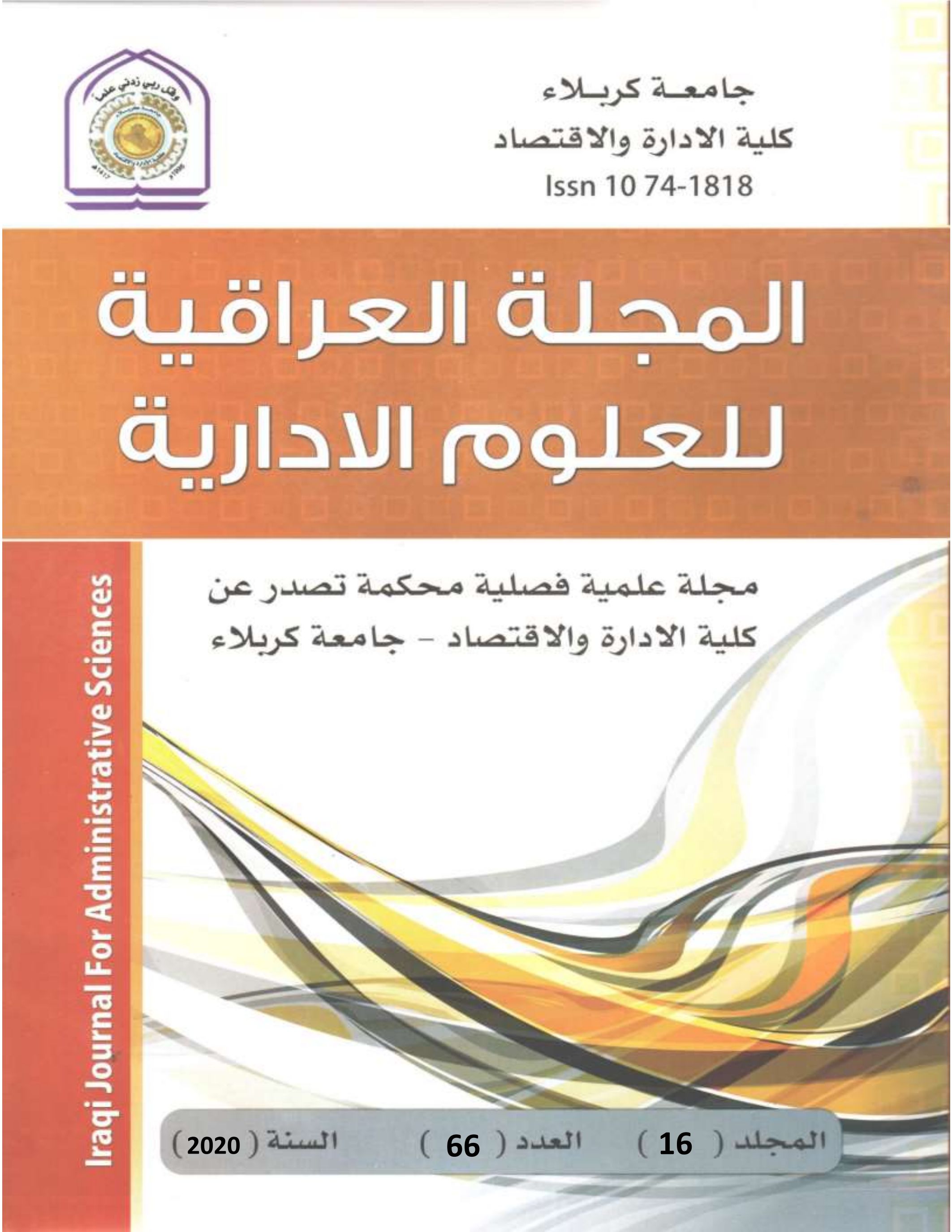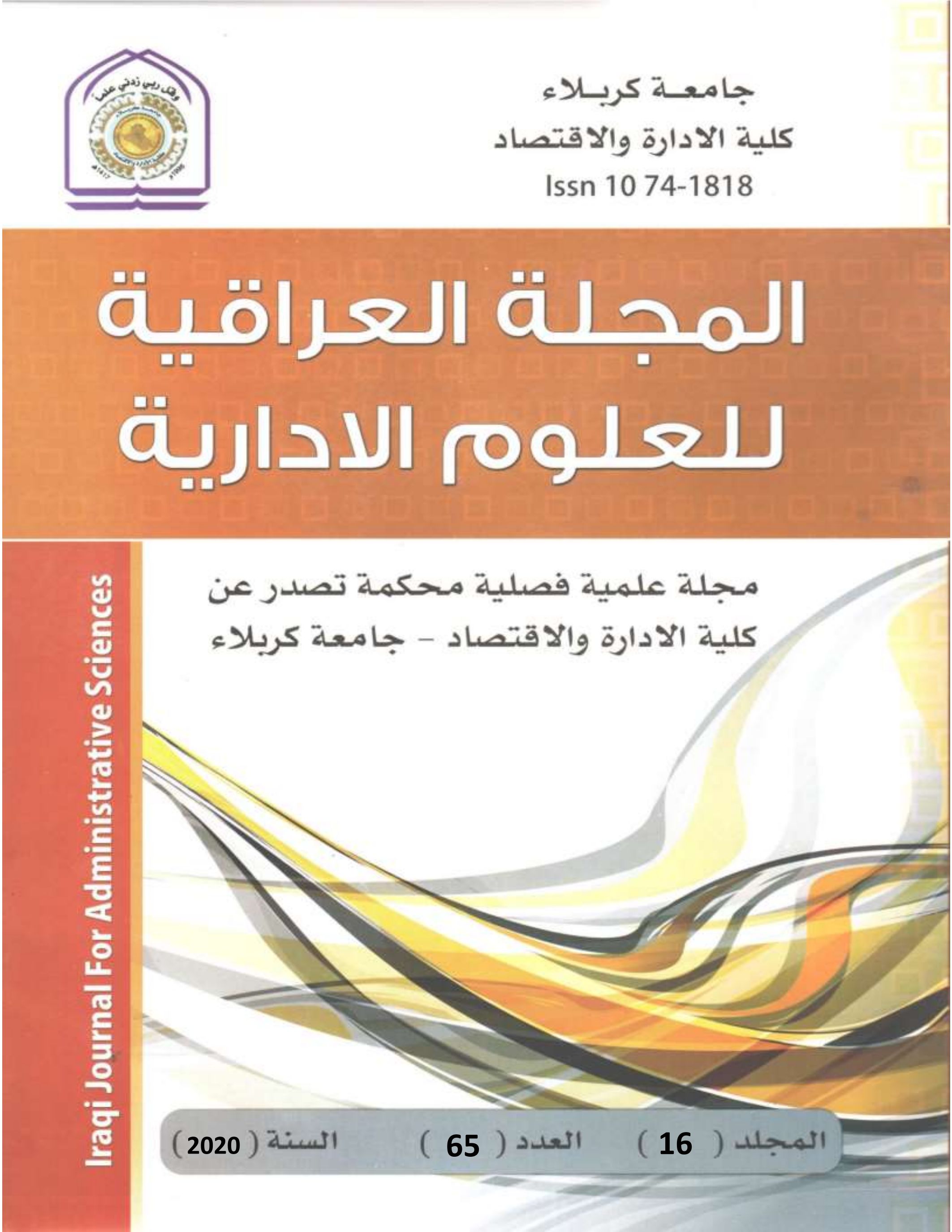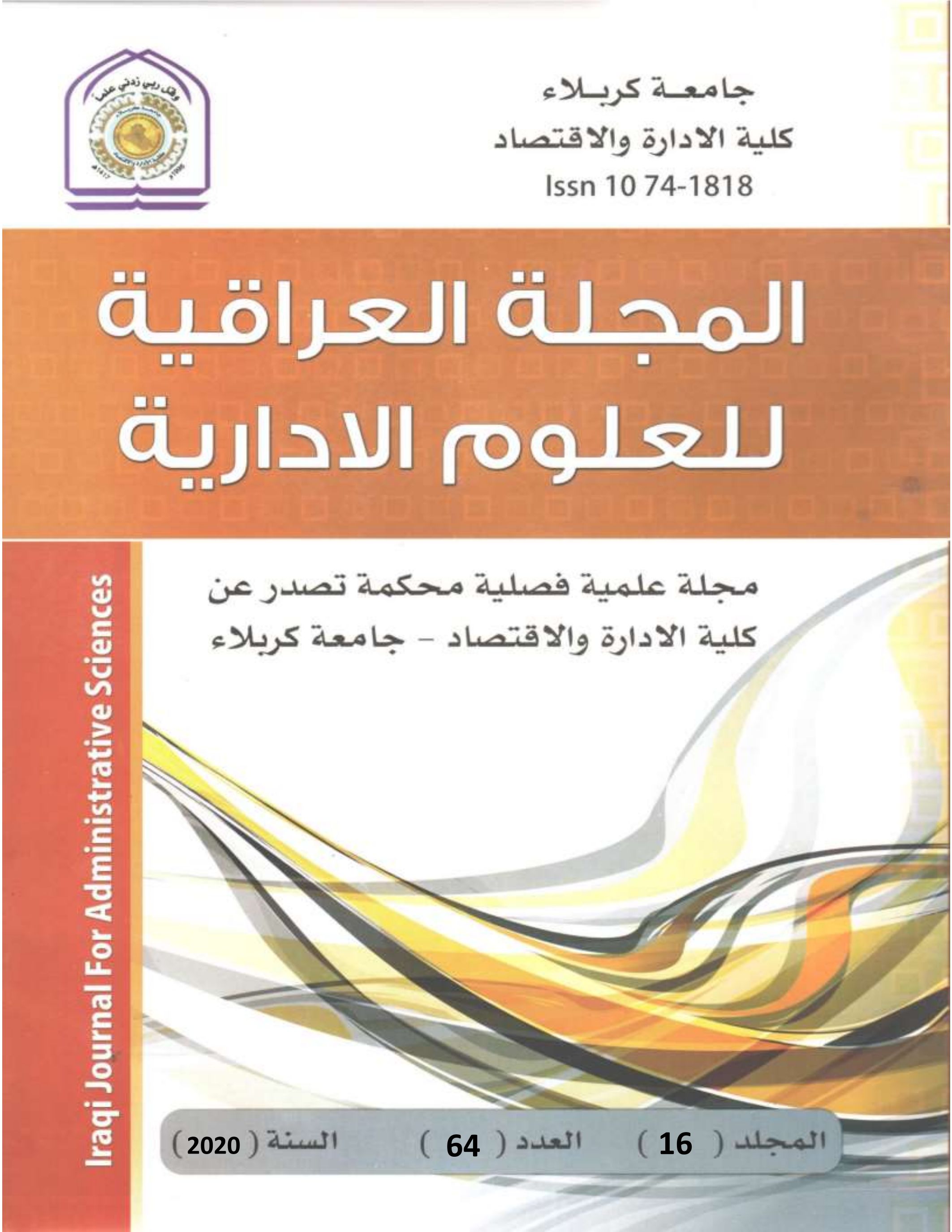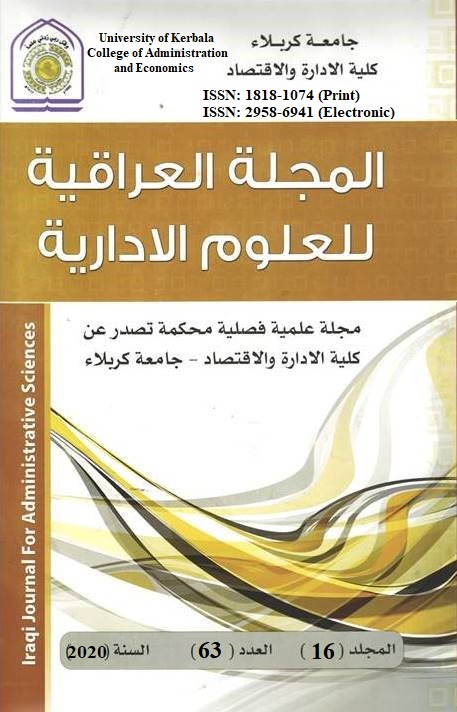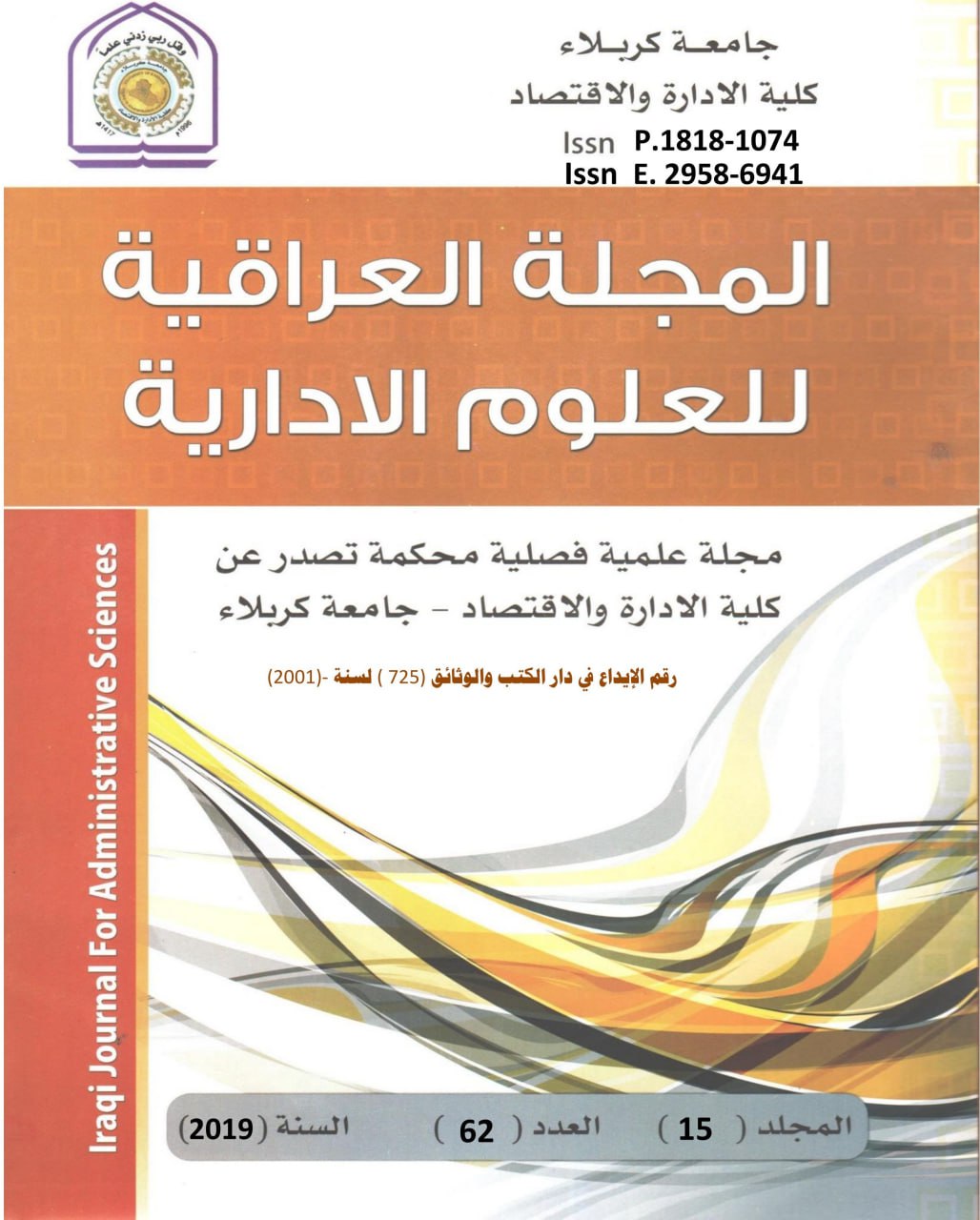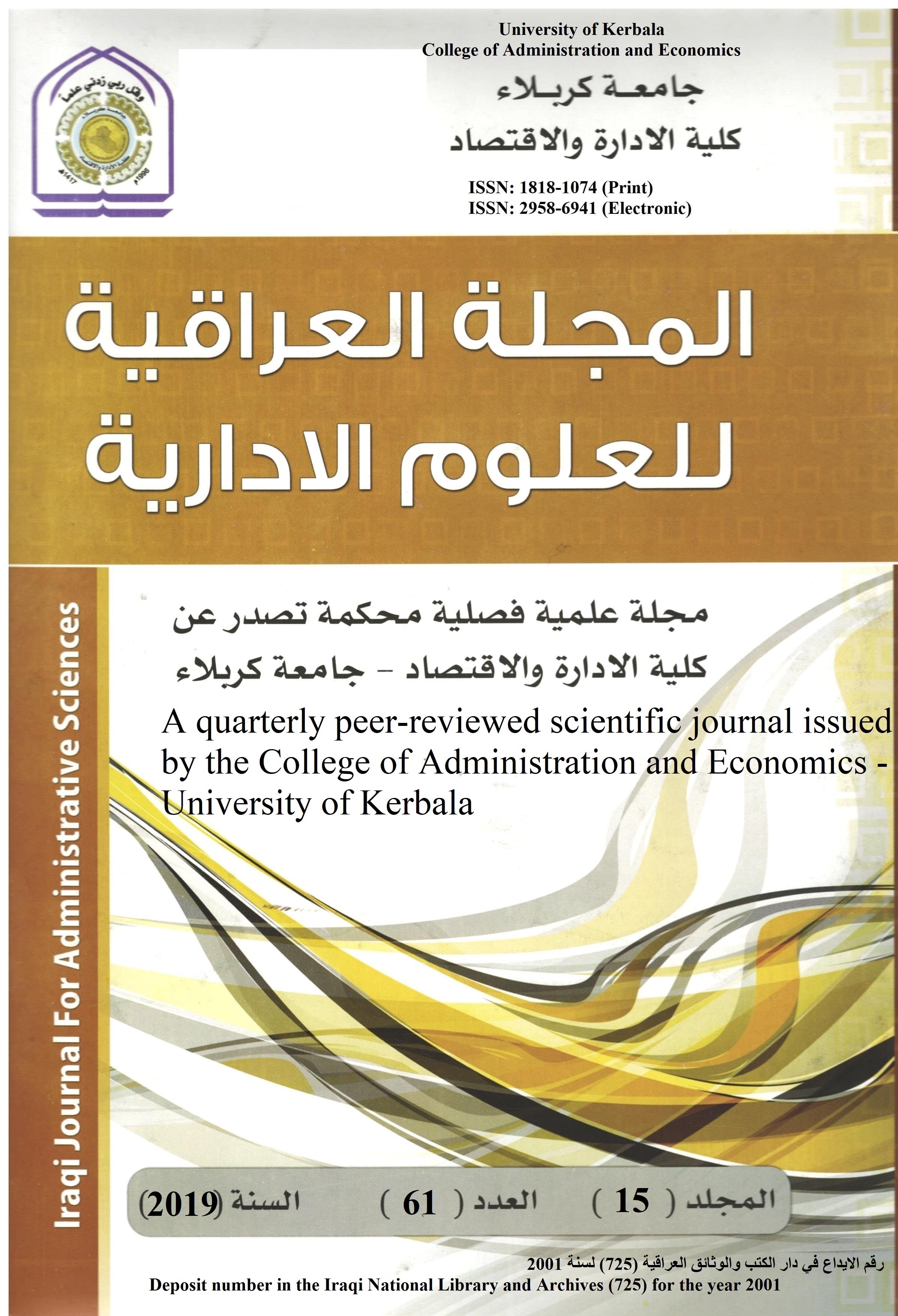المحفوظات
-
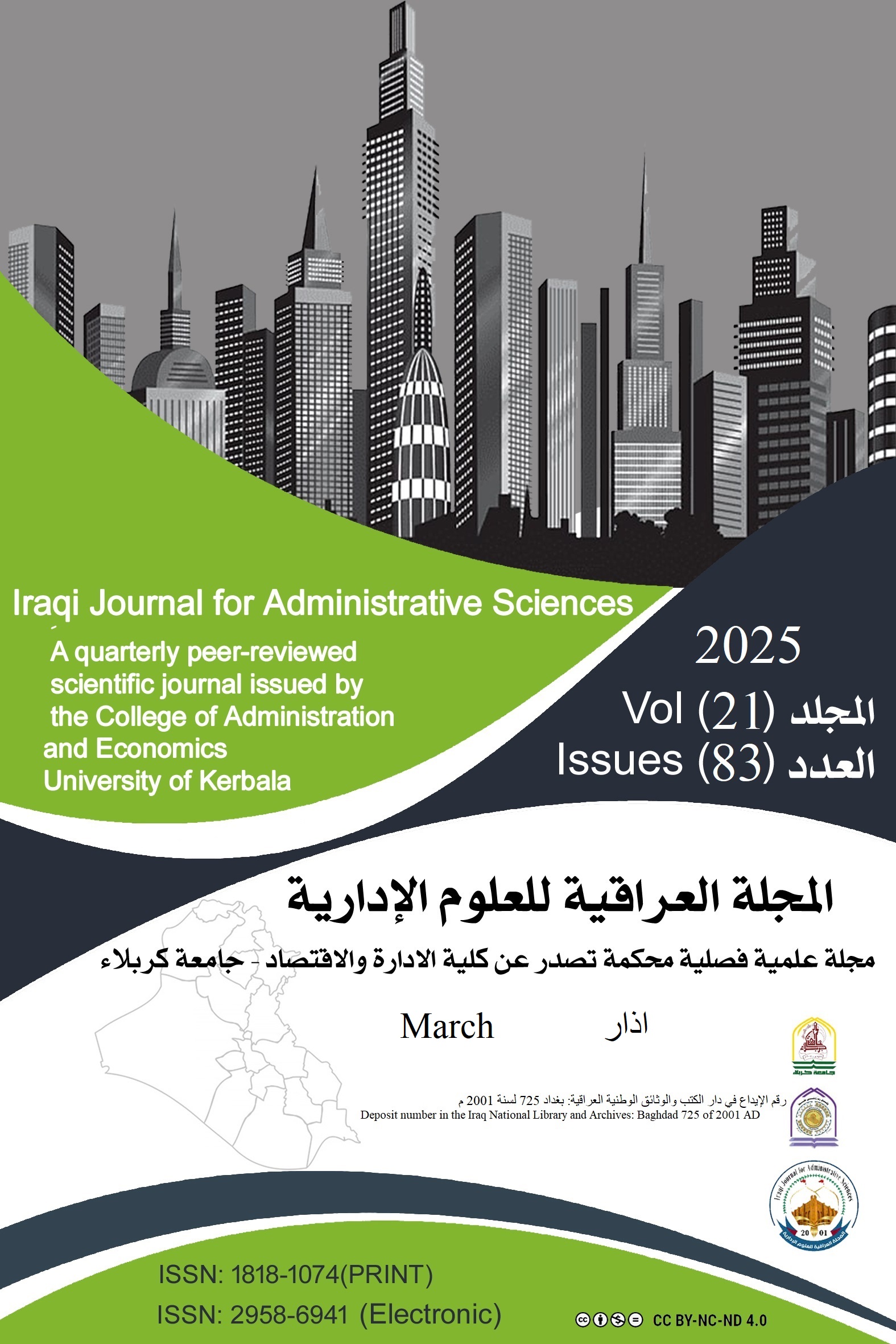
المجلة العراقية للعلوم الأدارية
مجلد 21 عدد 83 (2025)تستكشف الدراسات تأثير القيادة المسؤولة وسلوكيات القادة في تعزيز التوجه الريادي والاستعداد للتغير التنظيمي عبر تحسين جودة حياة العمل. كما تُبرز دور تقنيات مثل بطاقة العلامات المتوازنة في تقييم الأداء المستدام، ورأس المال الفكري الأخضر في دعم الإنتاج الأنظف. تحليل الإيرادات العامة والسياسات الاقتصادية في العراق يكشف تحديات الاستدامة المالية والتنموية (2004-2022)، مع تسليط الضوء على تأثير الإفصاح عن مخاطر المناخ (IFRS:S2) في البيئة العراقية. الدراسات تشير أيضًا إلى دور التكنولوجيا المالية في تعزيز الميزة التنافسية للمصارف، وأهمية التكامل بين الإدارة الفعّالة ولجان التدقيق لتقليل مخاطر الأسهم.
-

المجلة العراقية للعلوم الأدارية
مجلد 20 عدد 82 (2024)تركز هذه الابحاث بشكل أساسي على الإدارة والقيادة والأنظمة المالية داخل المؤسسات العراقية. وتستكشف موضوعات بالغة الأهمية بما في ذلك التصنيع الأخضر في دار الوارث للطباعة، وأنظمة المحاسبة في القطاع المصرفي في كردستان، وأساليب القيادة المختلفة (الأبوية، والأصيلة، والذكية، والقائمة على الحوار) عبر منظمات مختلفة. وتبحث الدراسات في كيفية تأثير هذه العوامل على سلوك مكان العمل، واتخاذ القرارات الاستراتيجية، والأداء التنظيمي.
وتشمل التحقيقات الرئيسية التحول الرقمي في المحاسبة، وديناميكيات ثقة العلامة التجارية في شركة بغداد للمشروبات الغازية، والممارسات المستدامة من خلال رأس المال الفكري الأخضر. وتغطي الجوانب المالية من خلال دراسات حول تنويع محفظة القروض وتأثيرات السوق على النمو الاقتصادي. ويغطي البحث قطاعات متنوعة بما في ذلك التعليم والرعاية الصحية والمؤسسات الدينية والمؤسسات التجارية، مما يوفر رؤى حول التنمية التنظيمية داخل الإطار المؤسسي للعراق. -
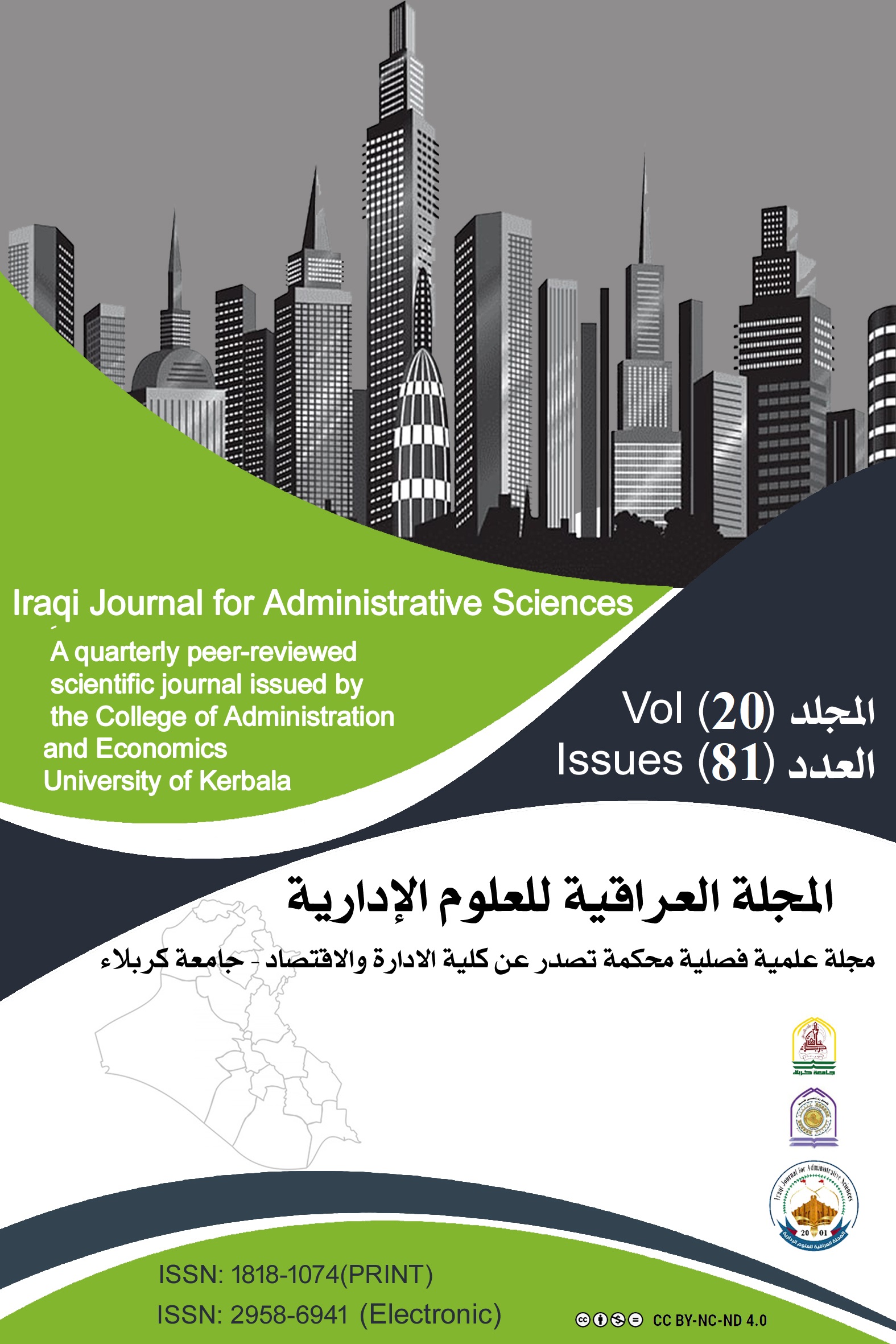
المجلة العراقية للعلوم الأدارية
مجلد 20 عدد 81 (2024)في هذا العدد، نقدم دراسات متنوعة تستكشف السلوك التنظيمي والإدارة والتسويق عبر مختلف القطاعات في العراق. يبحث مقالنا الرئيسي في العلاقة بين تعقيد الإنتاج المتصور والإبداع في النشر، ويقدم رؤى لإدارة الابتكار.
نفحص تأثير الروحانية في مكان العمل على التمكين النفسي في التعليم العالي، ثم نستكشف دور القيادة الذاتية في تعزيز التفاني الوظيفي بين موظفي الرعاية الصحية. يحلل قسمنا المالي تأثير هيكل رأس المال على القيمة السوقية من خلال نظرية الفطيرة، ويكمله دراسة حول تأثير الصورة الذهنية المدركة على سلوك الشراء لدى العملاء في الخدمات المصرفية.
يتضمن العدد أبحاثًا حول براعة التسويق والوضع الاستراتيجي، مع مراعاة جودة الحياة العملية كعامل وسيط. كما نتناول تأثير تسييس المنظمة على الصوت الأخلاقي للموظفين، مع التركيز على دور الإحباط.
يسلط قسم التكنولوجيا لدينا الضوء على إمكانات إدارة الانتباه لتعزيز الإبداع الديناميكي في مجال الاتصالات. نختتم بدراسة تطبيقية حول تكنولوجيا نمط الفشل ودورها في تحسين كفاءة المعدات في التصنيع.
توفر هذه الدراسات رؤية شاملة للاتجاهات والتحديات الحالية في بيئات الأعمال العراقية، وتقدم رؤى قيمة للباحثين والممارسين وصناع السياسات. من الإبداع وتمكين الموظفين إلى التموضع الاستراتيجي والتطبيقات التكنولوجية، يغطي هذا العدد مجموعة واسعة من المواضيع المهمة لفهم وتحسين الأداء التنظيمي في مختلف القطاعات. -
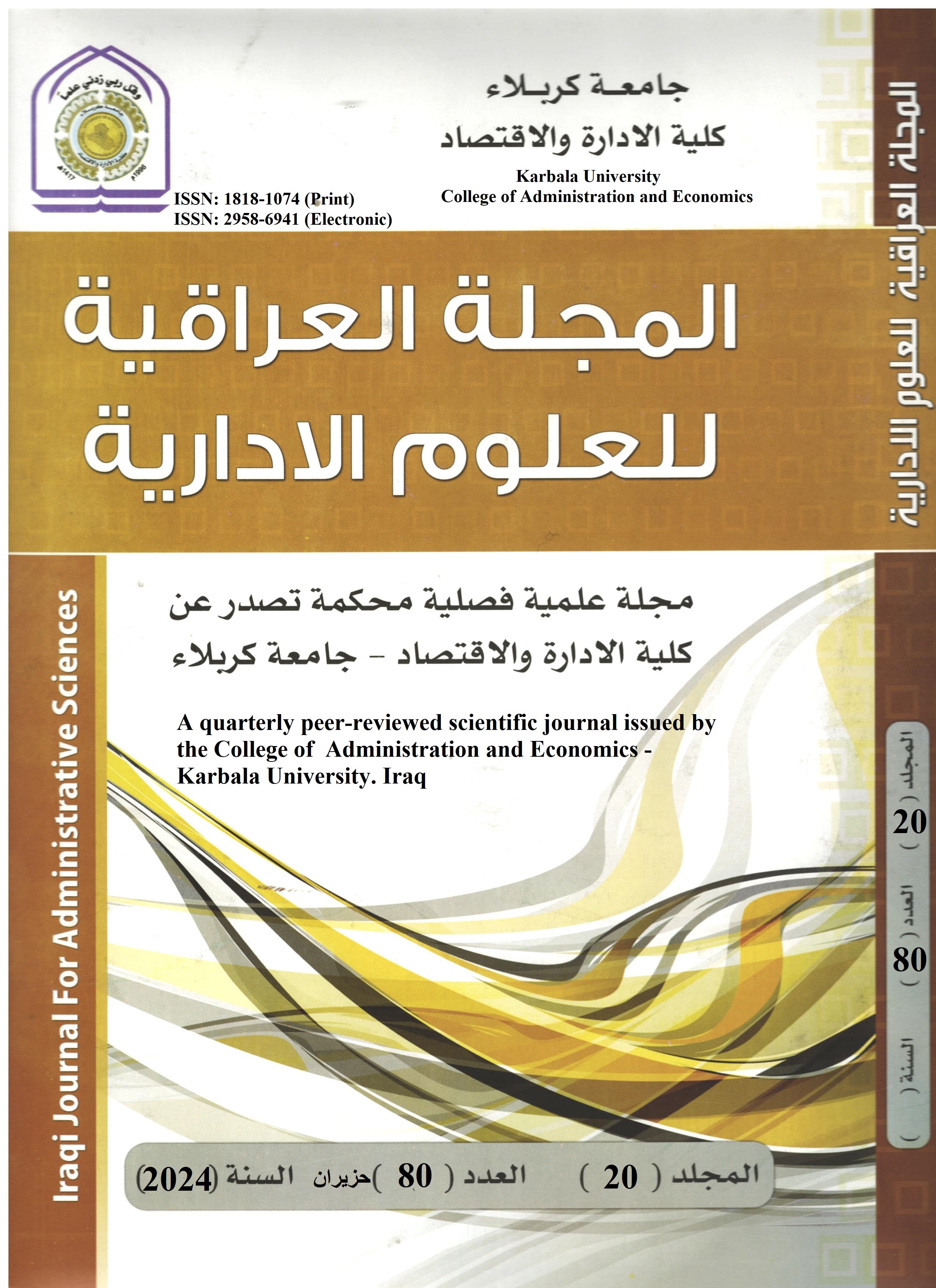
المجلة العراقية للعلوم الأدارية
مجلد 20 عدد 80 (2024)يقدم هذا العدد مجموعة متنوعة من الدراسات البحثية التي تغطي موضوعات في القيادة، والسلوك التنظيمي، والتحليل المالي، والتدقيق، والإدارة الاستراتيجية. وتستمد الدراسات من مختلف الصناعات بما في ذلك التعليم والخدمات المصرفية والرعاية الصحية، وتوفر رؤى ذات صلة عبر القطاعات.
تستكشف إحدى الدراسات الدور المعتدل لأبطال المعرفة في العلاقة بين تمكين القيادة والاستعداد للتغيير التنظيمي. باستخدام بيانات المسح من الموظفين في مجموعة الوارث التعليمية، يبحث الباحثون في كيفية تأثير الأفراد الذين يشجعون مشاركة المعرفة بشكل فعال على كيفية تأثير أسلوب القيادة التمكينية على الرغبة في التكيف مع التغيير.
في القطاع المصرفي، تم تطبيق دراسة نموذج ARIMA لتحليل تأثير استراتيجيات الائتمان على القيمة السوقية لعينة من البنوك التجارية العراقية. وتناول بحث آخر تأثير المنافسة المصرفية على الملاءة المالية من خلال دراسة تحليلية للمصارف المدرجة في سوق الأوراق المالية العراقية بين الأعوام 2005-2022.
تعد إدارة الأرباح موضوعًا رئيسيًا، حيث تبحث إحدى الدراسات في تأثير مؤشرات بيان الدخل في تقييم هذه الظاهرة. وتركز ورقة أخرى على دور المدقق في الحد من ممارسات إدارة الأرباح في الشركات.
كما تم بحث أهمية النزاهة التنظيمية في تعزيز التميز الاستراتيجي. ودراسة حول التخطيط الاستراتيجي تستكشف أثره على الرضا الوظيفي لدى العاملين في مستشفى الواسطي التعليمي في بغداد.
كما يتم تناول المجالات التي تتقاطع فيها القيادة والسلوك التنظيمي. يتضمن ذلك بحثًا حول تأثير مهارات القيادة الناعمة على الرفاهية في مكان العمل. بالإضافة إلى ذلك هناك دراسة تحليلية تبحث دور التعافي المالي في تحسين سمعة المصرف لدى عينة من المصارف العراقية الخاصة للمدة 2005-2021.
وختامًا للموضوع، قدمت ورقة بحثية تبحث في تأثير رأس المال الفكري الأخضر على السمعة التنظيمية. ويشير هذا إلى الأهمية المتزايدة لاعتبارات الاستدامة البيئية.
بشكل عام، تساهم الدراسات المنشورة هنا في إجراء أبحاث تجريبية عبر مجموعة من المواضيع المقنعة وذات الصلة بالقيادة والإدارة والمالية والتدقيق والمنظمات اليوم. تحتوي النتائج على تطبيقات للممارسة بالإضافة إلى تحديد مجالات مثمرة لمزيد من البحث العلمي. -
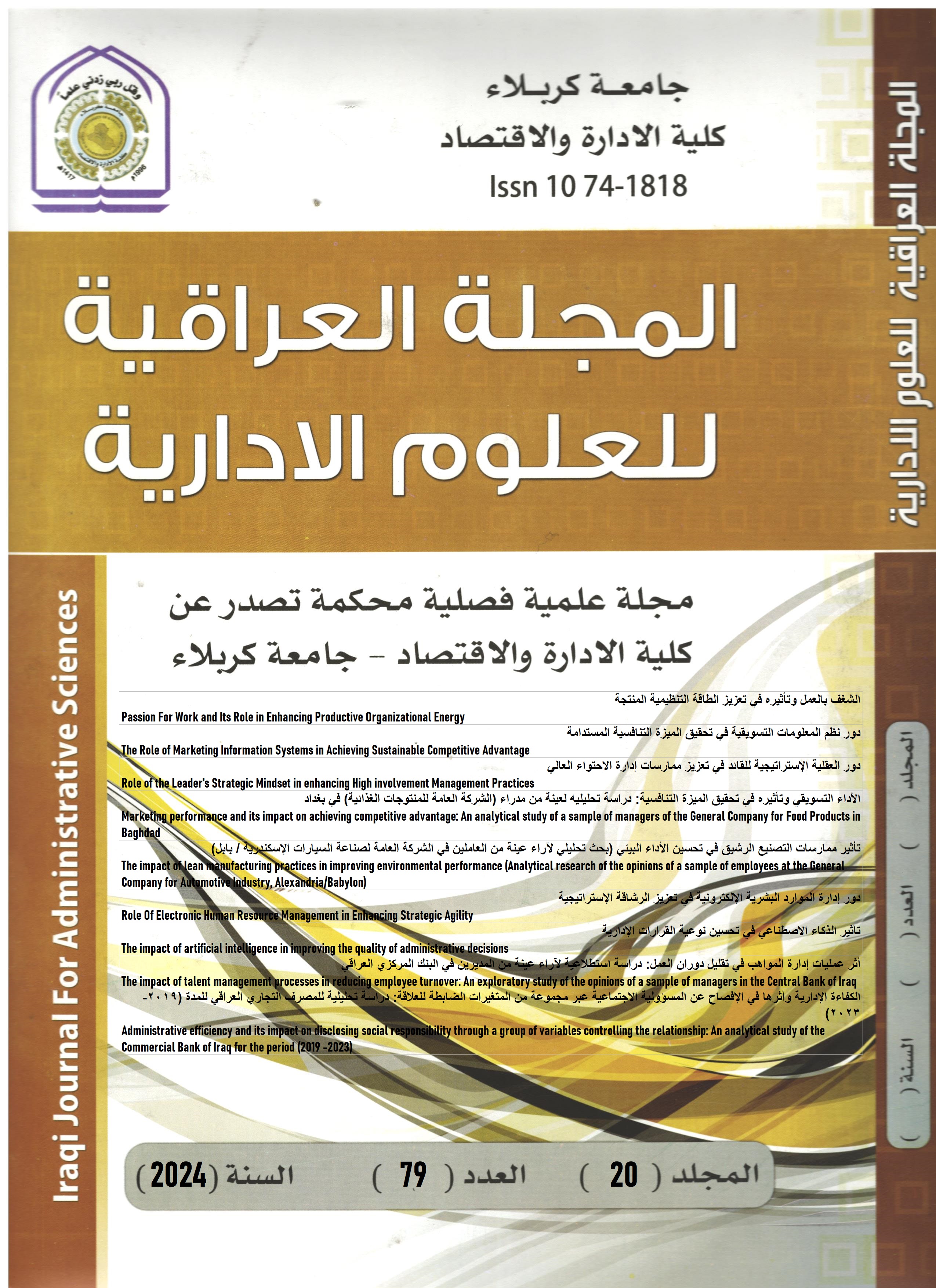
المجلة العراقية للعلوم الأدارية
مجلد 20 عدد 79 (2024)ركز هذا العدد على مجموعة من العوامل التي تتعلق بجوانب السلوك التنظيمي، وتعزيز الطاقة التنظيمية واخذ الجوانب التي تتعلق بنظم المعلومات، وكما تناولت عدد من المقالات عددا من الجوانب الاستراتيجية والتصنيع الرشيق والموارد البشرية الالكرتونية، الكفاءة الادارية، ادارة المواهب، كيفية تقليل دوران العمل في المنظمات
-
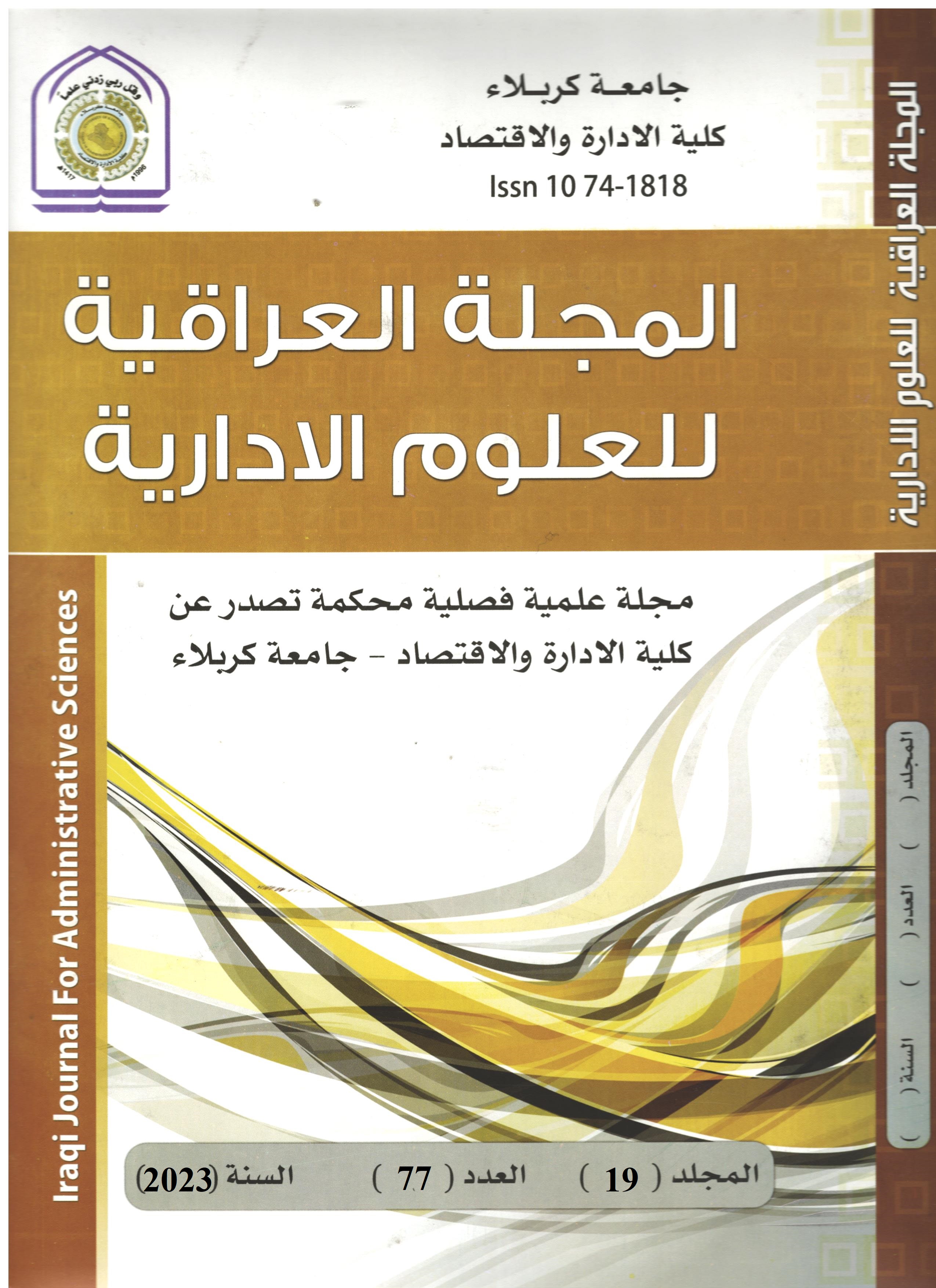
المجلة العراقية للعلوم الادارية
مجلد 19 عدد 77 (2023)هذا العدد يتضمن عدد من البحوث في مجالات الادارة



